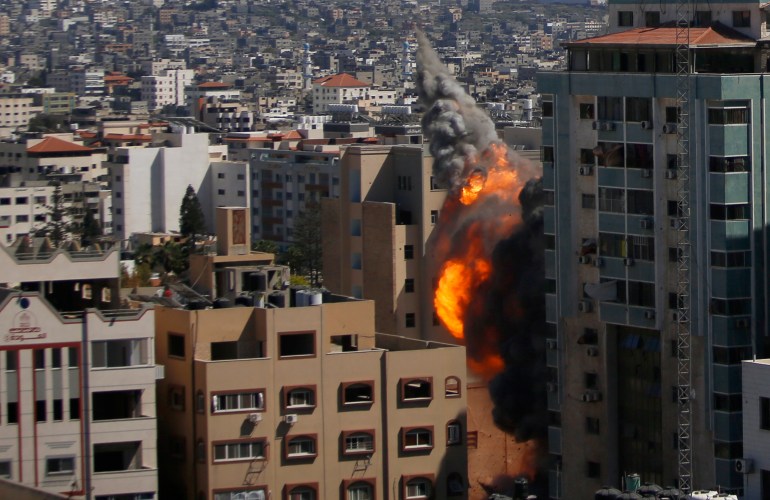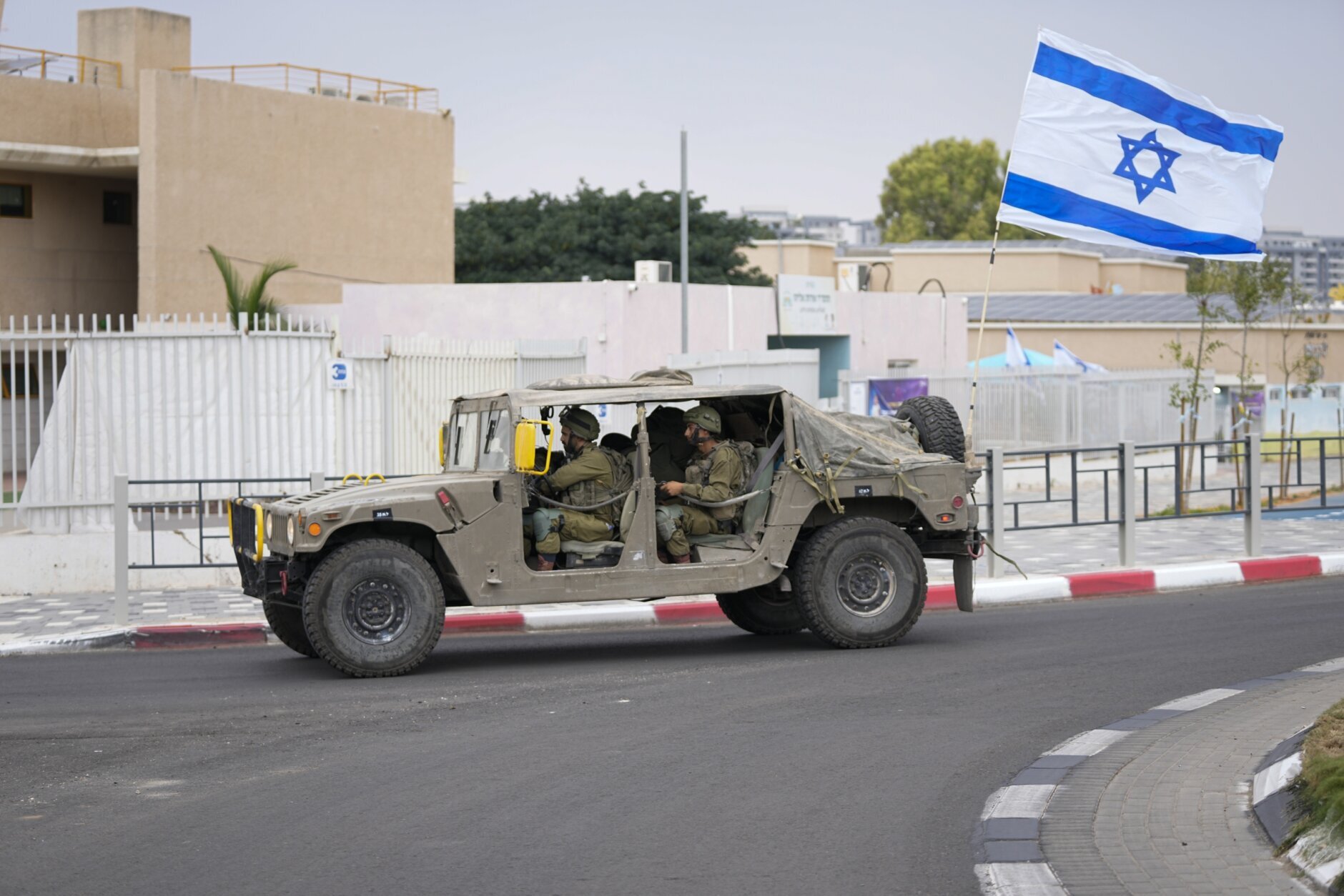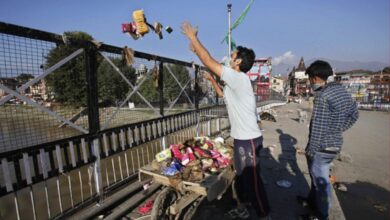Israel Must Tackle Hamas And Finish This In One Shot, And India Must Support Israel This Time, As Being Neutral Can Not Be A Strategy.
Kobbi Shoshani, Consul General of Israel in Mumbai, emphasised the importance of support from leaders such as Prime Minister Modi, noting that it gives Israel a sense of power. He emphasised Israel's deep link, friendship, and support from India and reaffirmed Israel's commitment to assisting foreigners and Indians in securely exiting the region if required. Naor Gilon, Israel's ambassador to India, emphasised the importance of India's support for Israel, emphasising India's prominence in global politics as well as its own lengthy war against terrorism.

India’s support for the Palestinian cause is an important component of the country’s foreign policy. India became the first non-Arab country to recognise the Palestine Liberation Organization (PLO) as the only legitimate representation of the Palestinian people in 1974. India was one of the first nations to recognise the Palestinian State in 1988. India established its Representative Office in Gaza in 1996, which was later relocated to Ramallah in 2003. India has been an outspoken supporter of the Palestinian cause in a number of global fora.
This time, however, India has backed Israel since backing a terrorist outfit is never a justifiable decision.
Following a phone chat between Israeli PM Benjamin Netanyahu and Indian PM Narendra Modi about the current situation in Israel, Modi released a statement strongly condemning all types of terrorism.

Why being neutral can’t be a strategy for India?
This effort is also significant in light of how China and Pakistan — India’s ties are strained with both — responded to the violence. China has said it was “deeply concerned” by the “speed up of tension and violence” between Israel and Palestine. While there are no specific bilateral problems between Tel Aviv and Beijing, the latter has opposed Israel’s construction events in the West Bank and East Jerusalem. Similarly, you will expect the same from Pakistan as well. Pakistan’s Prime Minister, Shehbaz Sharif, has accused Israel of “illegal occupation” for the violence in the territory.
Kobbi Shoshani, Consul General of Israel in Mumbai, emphasised the importance of support from leaders such as Prime Minister Modi, noting that it gives Israel a sense of power. He emphasised Israel’s deep link, friendship, and support from India and reaffirmed Israel’s commitment to assisting foreigners and Indians in securely exiting the region if required. Naor Gilon, Israel’s ambassador to India, emphasised the importance of India’s support for Israel, emphasising India’s prominence in global politics as well as its own lengthy war against terrorism.
The need to maintain healthy relations for trade and commerce.
The Israel-Gaza conflict comes less than a month after India, along with the United States, Saudi Arabia, the UAE, France, Germany, Italy, and the European Union, unveiled the India-Middle East-Europe Economic Corridor during the G20 Summit in New Delhi. Prime Minister Modi has previously stated that this initiative will be the foundation of global trade for centuries. The initiative was also viewed as a counter-project to China’s Belt and Road Initiative.

The escalation of violence has put Saudi Arabia in an awkward position at a time when the US is negotiating the normalisation of its relations with Netanyahu. The Hamas strike was interpreted as a clear warning to Riyadh. Saudi Arabia has called for an immediate halt to the violence, warning of an “explosive situation as a result of the continued occupation and deprivation of the legitimate rights of the Palestinian people,” implying that it will not pursue normalisation while ignoring Palestinian interests. This might jeopardise the ambitious strategy. Previously limited to trade, India’s ambitions in the Middle East are now strategic and political as New Delhi attempts to confront China and emerge as a vital global actor.
How have India’s relations changed from history to today?
Since India’s independence, India has had a variety of positions on the Israel-Palestine issue. India only recognised the State of Israel in 1950. This was for a variety of reasons. As a country that had witnessed the horrors of religious partition, India was opposed to the formation of two nations based on religion. In addition, Prime Minister Jawaharlal Nehru subsequently stated that India abstained from acknowledging Israel “out of a desire not to offend its allies in the Arab countries.”
While involved with the Yasser Arafat-led PLO, India’s connection with Israel remained minimal over the years. Indira and Rajiv Gandhi’s governments continued to back the Palestinian cause. This support, however, drew criticism at home, particularly when the Arab world remained neutral during the 1962 India-China War and backed Pakistan during the 1965 and 1971 conflicts.
The invasion of Kuwait by Iraq and the demise of the Soviet Union prompted a dramatic shift in India’s Middle East strategy. With the conclusion of the Cold War, India was obliged to adjust its policy in response to the PLO’s backing for Saddam Hussein and the dilution of the Non-Aligned Movement. In 1992, New Delhi established full diplomatic relations with Israel. Under the Atal Bihari Vajpayee-led BJP administration, relations improved. During the 1999 Kargil War, Israel became a friend in need by providing India with critical military supplies. Therefore, it’s time for India to pay back the friendship.
Also, India cannot be neutral at this point as both prime ministers seem to have similar visions.
The ties have changed noticeably in favour of a friendlier tone since 2014. In a UN vote on whether Israel should be tried for suspected war crimes committed during the 2014 Gaza Crisis, India abstained. In 2017, Mr Modi became the first Indian PM to visit Israel.
The defence and tourist sectors are now included in the India-Israel connection. Some political analysts also refer to Netanyahu’s right-wing Likud party and India’s ruling BJP’s same political ideas, as well as their connections with ultranationalist organisations, as contributing factors to the two nations’ closer relations.

Conclusion.
Though terror is not supported in any way, and thus India’s position on Netanyahu’s nation in this situation is acceptable, there is a broader policy that should have been affirmed, which is that of equal rights for both Israelis and Palestinians to live in peace, security, and dignity behind safe borders, which has been India’s support for Palestine since the beginning.




